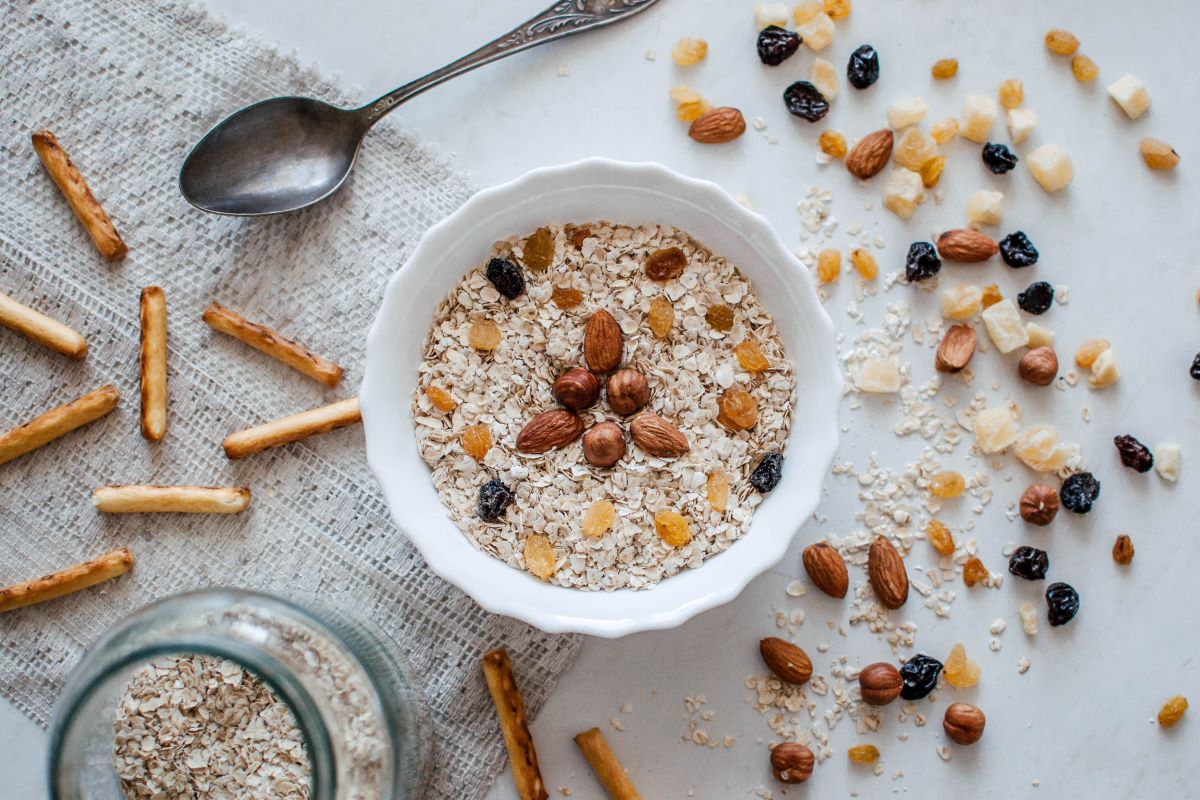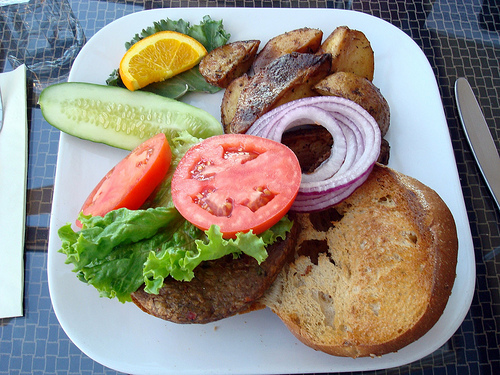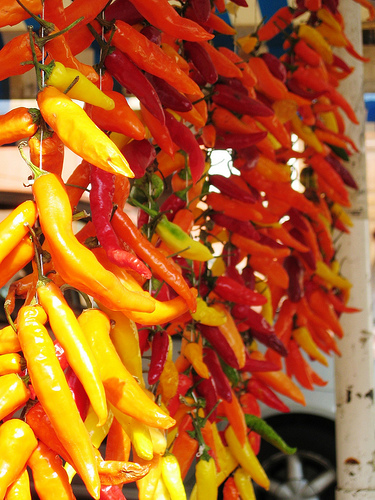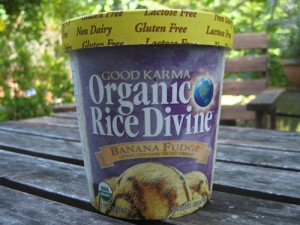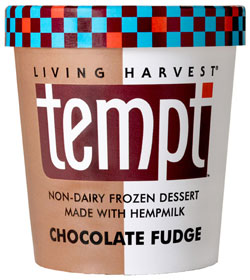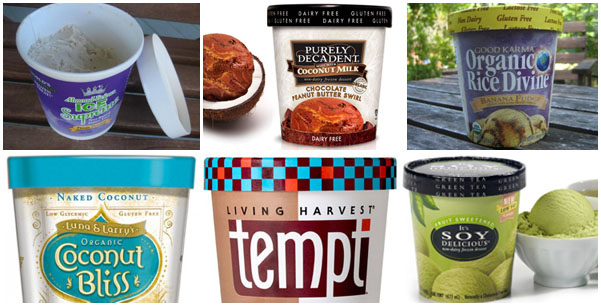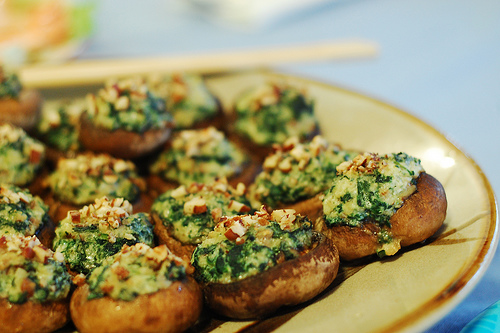Table of Contents
Iron is an essential nutrient that serves many bodily functions—from transporting oxygen to producing energy and supporting our immune function.
An adequate iron intake is critical for maintaining overall health and wellness, particularly for individuals following a strict vegan diet. However, getting enough iron from a vegan diet is often viewed as challenging, due to the lower absorption rate of nonheme iron.
Despite this, by no means is getting enough iron on a vegan diet impossible. This article will explore various plant-based iron sources—and their benefits to help vegans easily meet their daily iron needs.
Iron’s Importance for the Body
Iron plays many crucial roles in maintaining health and well-being throughout the body. A deficiency in this essential nutrient, known as iron deficiency, can lead to anemia, characterized by symptoms like fatigue, pale skin, and hair loss.
Iron deficiency anemia is a common condition, not only among vegans or vegetarians, but also in the general population.
Understanding the different forms of dietary iron can also aid in this process.
Iron occurs in two forms in our diet:
- Heme Iron
- Nonheme Iron
Heme iron, found in animal foods, is more readily absorbed by the body.
Non-heme iron, found in plant foods, constitutes the majority of dietary iron—but both vegans and omnivores. Although it has a lower absorption rate, certain dietary practices can enhance its bioavailability, such as combining iron-rich foods with natural sources of vitamin C.
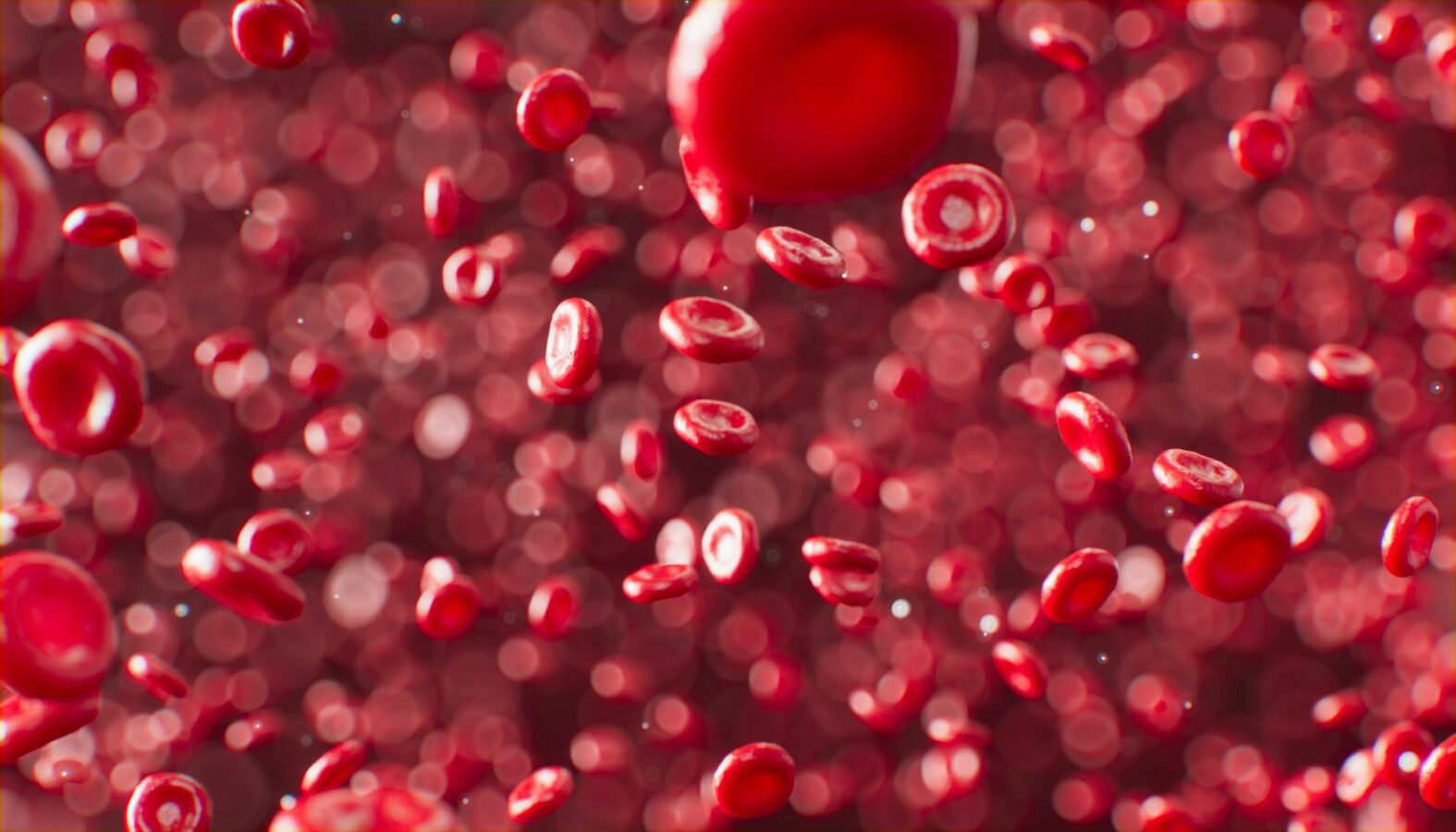
Oxygen Transport
One of the primary functions of iron in the human body is oxygen transport.
It aids in forming hemoglobin, a protein in red blood cells responsible for carrying oxygen from the lungs to different body parts. Hemoglobin contains about two-thirds of the body’s iron.
If you’re iron deficient, your body can’t produce enough healthy red blood cells to efficiently transport oxygen, leading to fatigue and other symptoms of anemia.
In addition, iron deficiency can also affect cognitive function and neurocognitive development, particularly in infants and children.
Iron is involved in various brain functions, including neurotransmitter synthesis and myelin production, the fatty layer that insulates nerve fibers. Therefore, maintaining optimal iron levels is vital not only for physical but also for mental health.
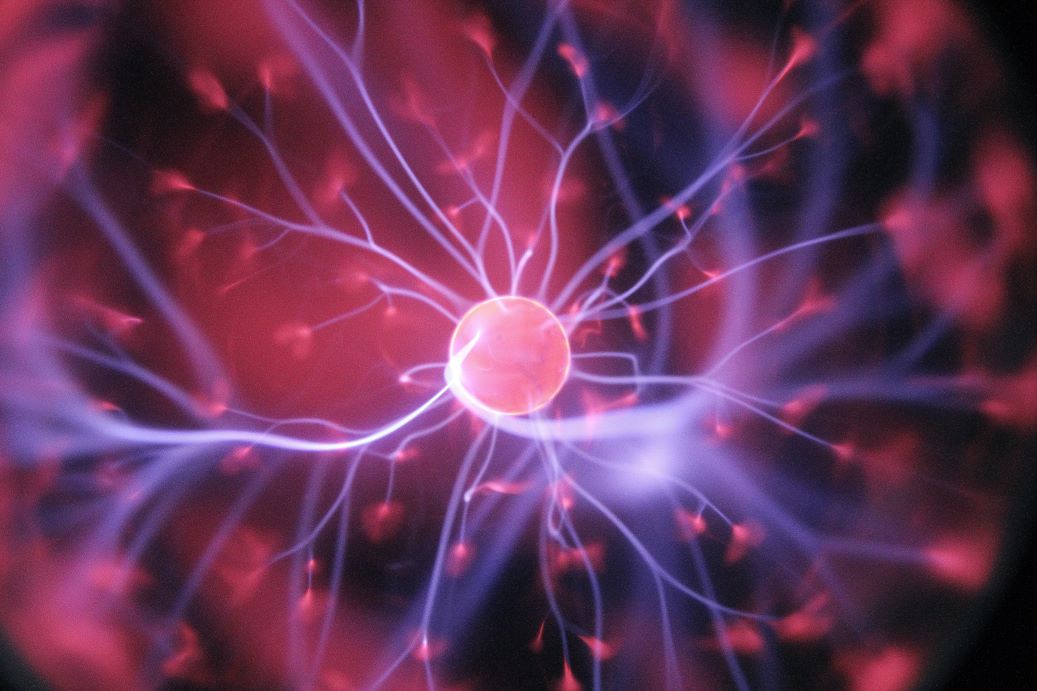
Energy Production
Iron also plays a crucial role in energy production. It participates in various metabolic processes, including the electron transport chain, a key component of cellular respiration—the process by which cells generate energy. When your body doesn’t have enough iron, your cells may not get the energy they need to perform their functions effectively, resulting in feelings of weakness and exhaustion.
Iron is also involved in the conversion of blood sugar into energy. This not only impacts energy levels but also influences blood sugar control, which is critical for preventing conditions such as diabetes and metabolic syndrome.
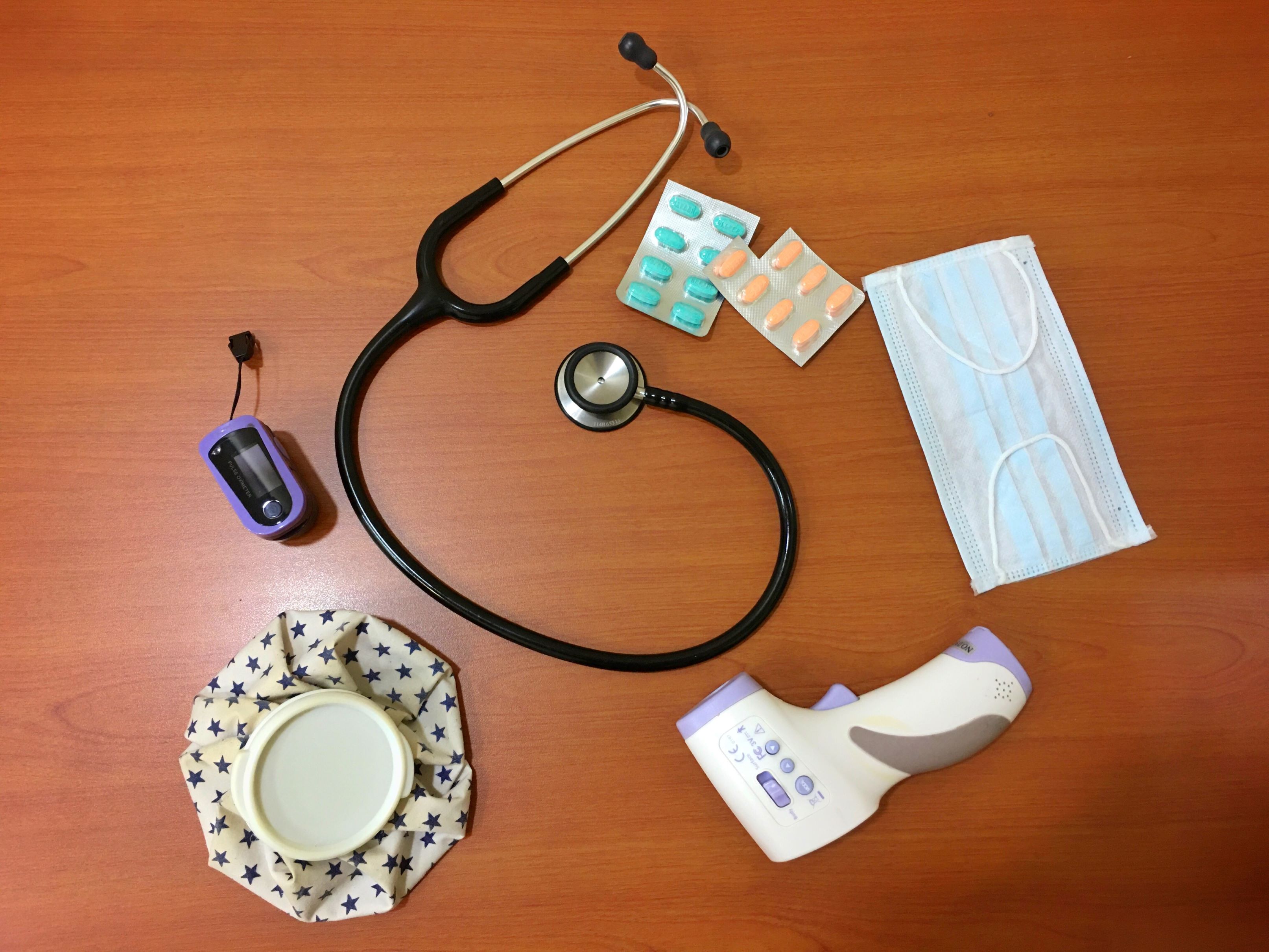
Immune Function
Iron extends beyond oxygen transport and energy production and supports immune function.
Iron is required for the proliferation and maturation of immune cells, particularly lymphocytes, which help protect our body against infections and diseases. Moreover, iron is involved in the production of cytokines, molecules that help regulate the immune response. Therefore, lower iron stores can negatively affect immune function, making the body more susceptible to infections.
This also underscores the potential implications of iron deficiency on wound healing. Since iron is vital for immune cell production and function, insufficient iron levels could lead to a slower or impaired healing process.
Vegan Food Sources of Iron
While a vegan diet excludes animal-derived foods, often considered primary sources of iron, many vegan-friendly foods are rich in this essential nutrient. The plant-based diet provides ample opportunities to meet your iron needs, from legumes and pulses to whole grains, nuts, and seeds.
Legumes and Pulses
Legumes and pulses are a good source of iron and packed with protein, dietary fiber, and various other essential nutrients. Consuming various foods can help ensure a balanced diet and maintain optimal iron levels.
Furthermore, many legumes and pulses, such as lentils, chickpeas, and beans, also contain generous amounts of folate, a B-vitamin that synergizes with iron to produce red blood cells.
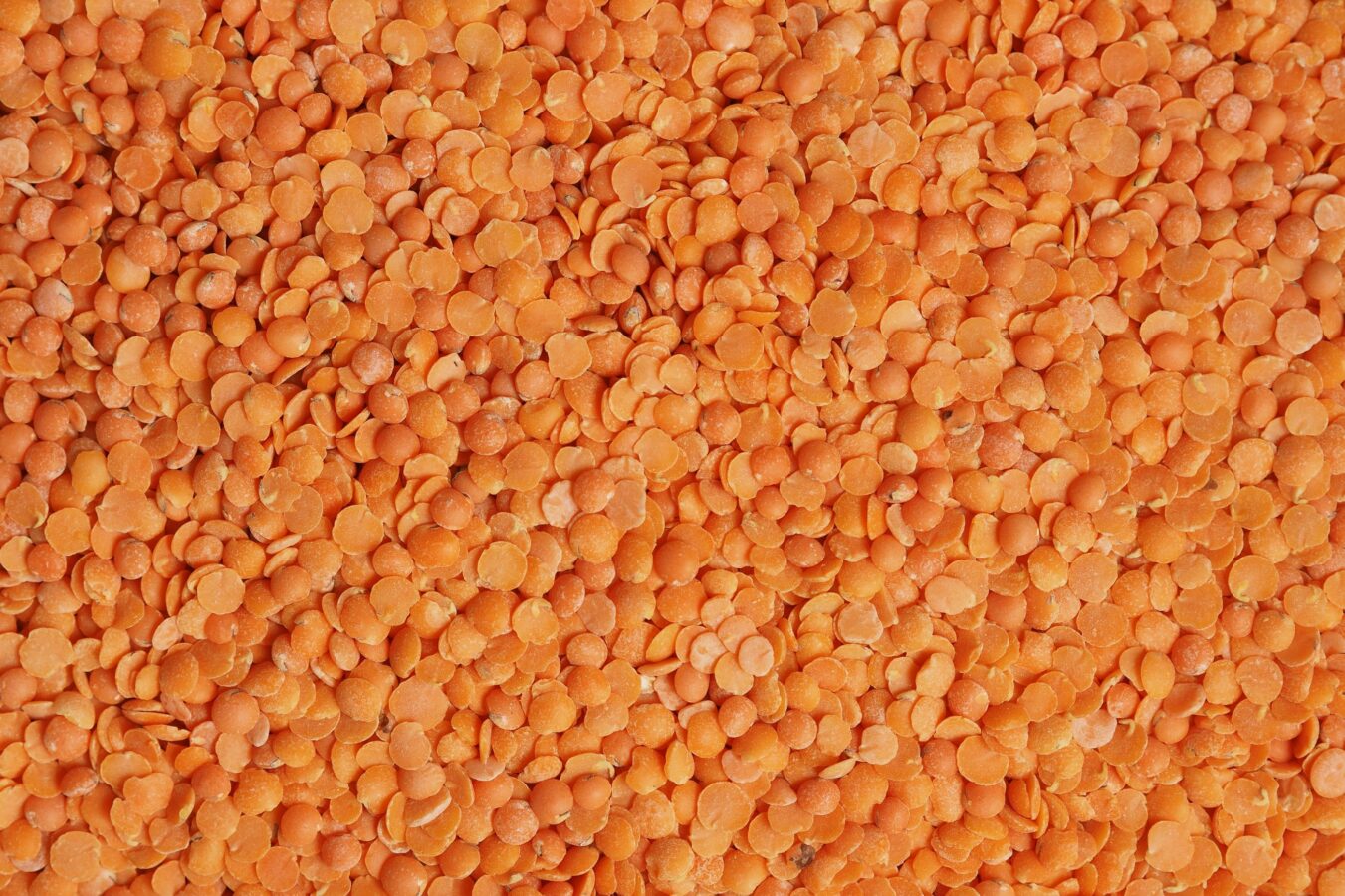
Lentils
Lentils are particularly high in iron, lentils are versatile and make a great base for soup!
6.6mg of iron per 1 cup of cooked lentils.
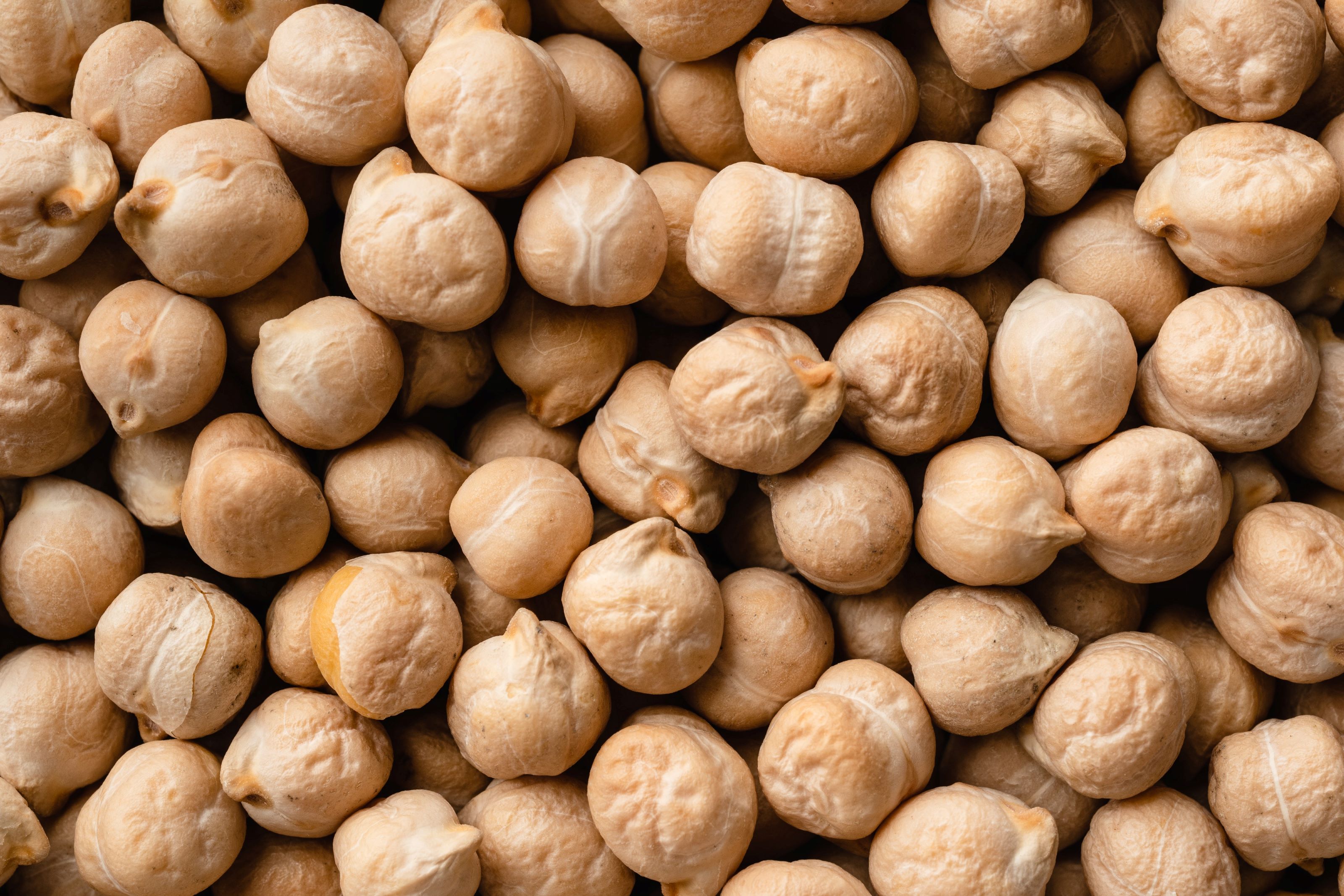
Chickpeas
Chickpeas are used in dishes like hummus, falafel, and curries. Season them and bake for a delicious snack.
2.2mg of iron per 3/4 cup of cooked chickpeas.
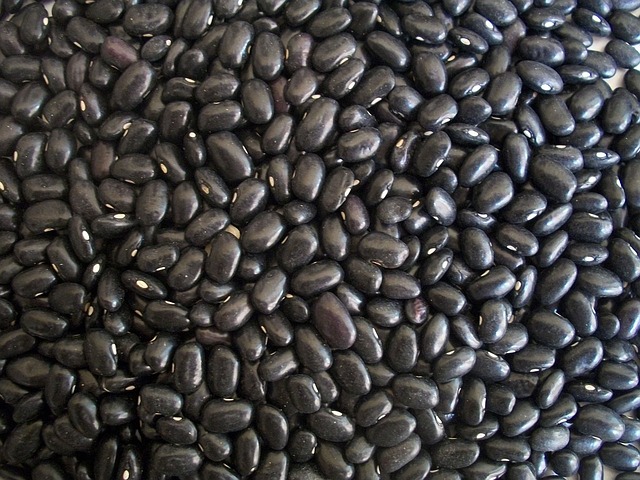
Black Beans
Black beans are a staple in Mexican cuisine, and are a rich source of iron, protein and dietary fiber.
3-4mg of iron per 3/4 cup cooked black beans.
Whole Grains
Whole grains are another excellent source of iron for plant-based eaters. They contain the entire grain—the bran, germ, and endosperm. Foods made from these grains are rich in fiber, B vitamins, and numerous minerals, including iron.
The dietary fiber in whole grains also plays a role in iron absorption. It helps maintain a healthy gut, which is essential for nutrient absorption, including iron. The gut microbiota can also impact iron absorption, emphasizing the importance of a healthy and diverse diet.
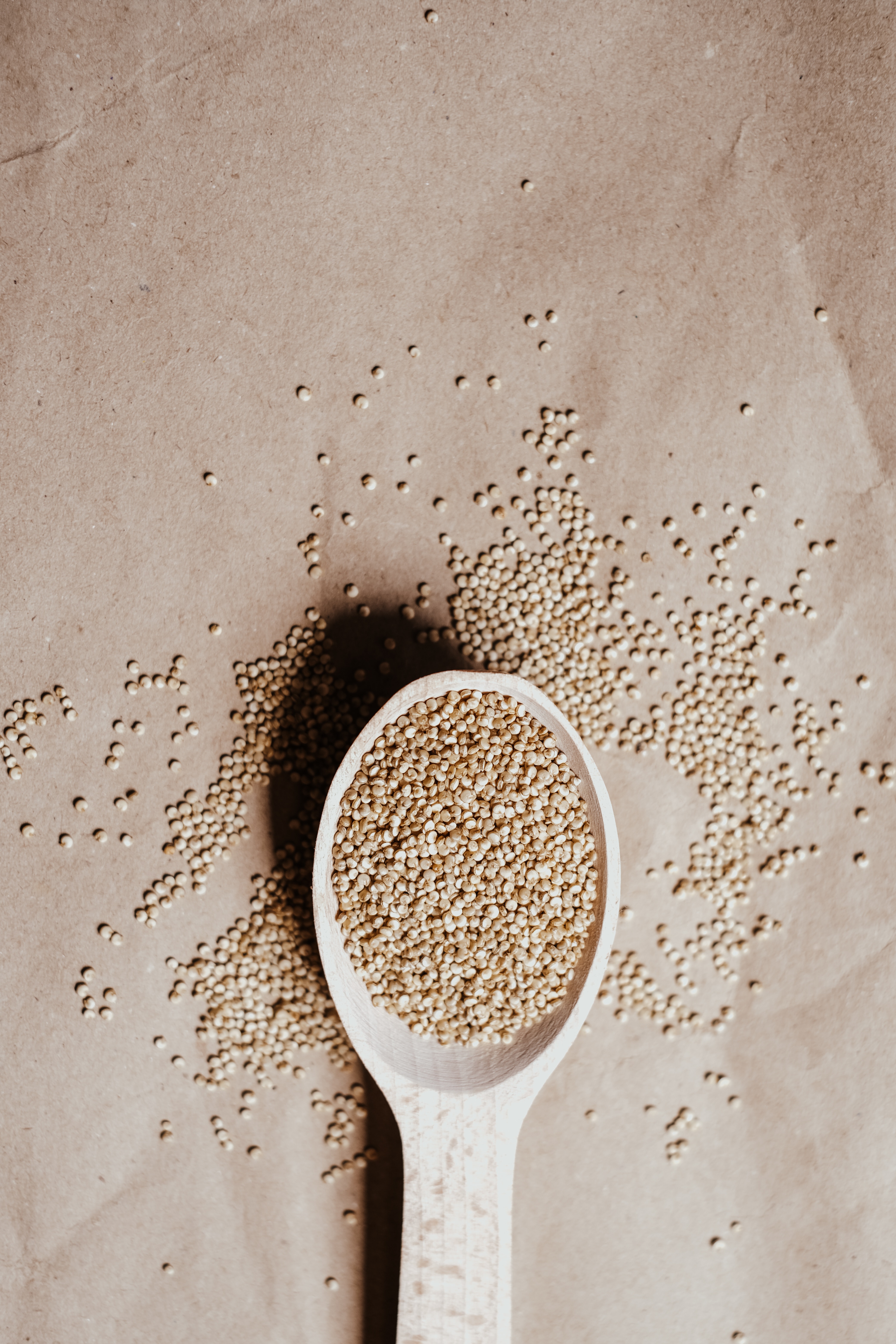
Quinoa
Quinoa is a delicious little grain that makes a great stand-alone side dish, or addition to a hearty salad.
1.5mg of iron per 1/2 cup of cooked quinoa.
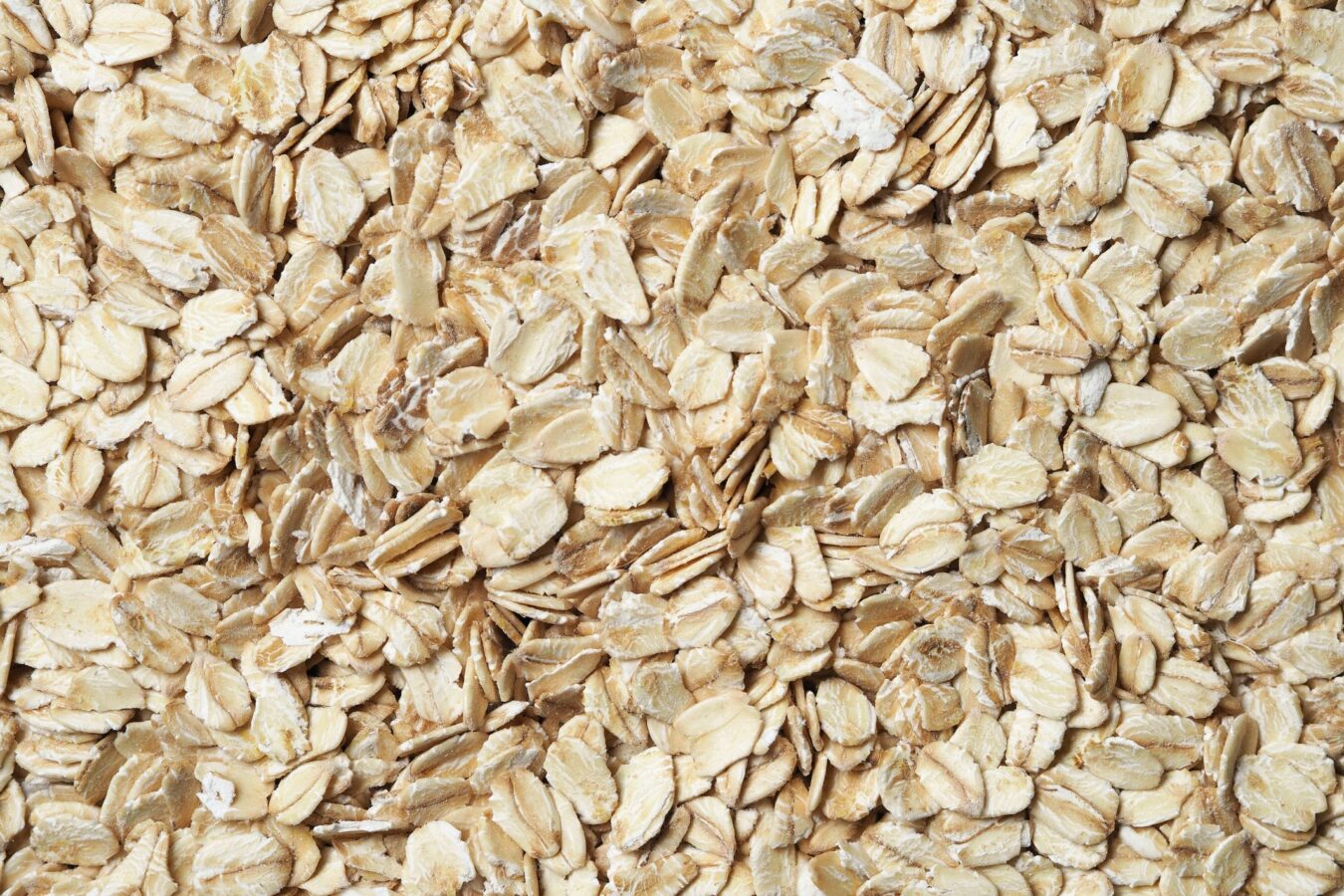
Oats
Cooked oats can be doctored up with raisins & cinnamon for an even bigger boost of daily iron!
1.4mg of iron per 3/4 cup cooked oats.
Nuts and Seeds
Nuts and seeds are rich in healthy fats and great sources of iron and other minerals. They are easy to incorporate into various dishes or enjoy as snacks, making them an excellent choice for boosting your iron intake.
Furthermore, nuts and seeds are also rich in antioxidants, which can help protect against oxidative stress. This is particularly important for those with iron deficiency, as research suggests that low iron levels can enhance the susceptibility to oxidative damage.
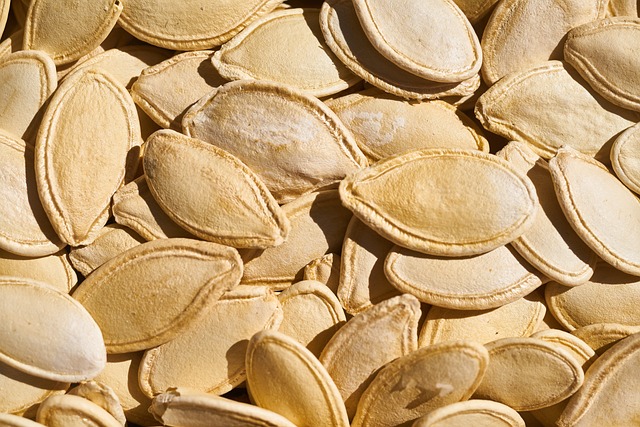
Pumpkin Seeds
Pumpkin seeds make a great snack when seasoned and baked.
4.7mg of iron per 1/4 cup of pumpkin seeds.
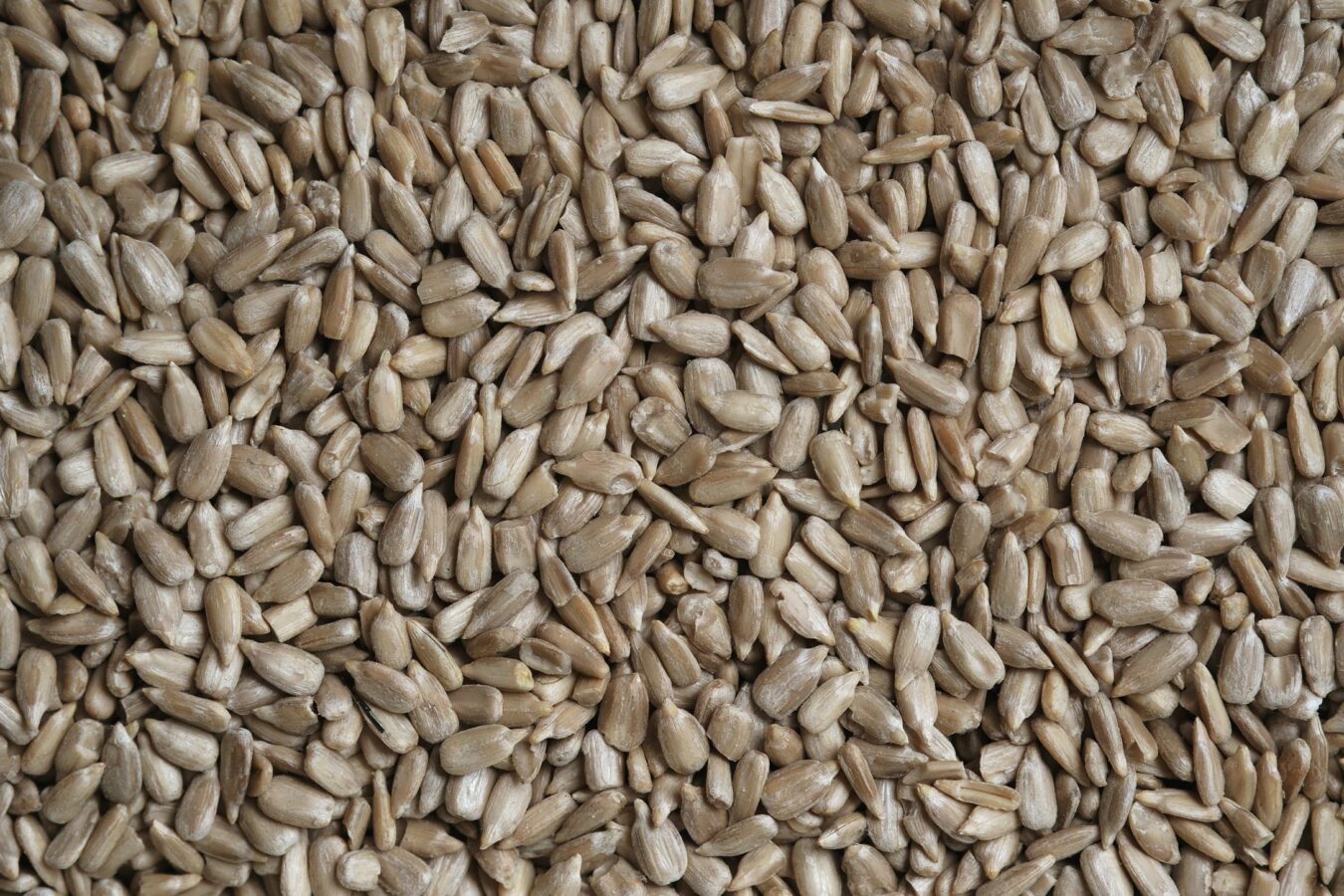
Sunflower Seeds
Sunflower seeds make a great salad topping – just a little bit goes a long way with these neat little seeds.
1.2mg of iron per ounce of sunflower seeds.
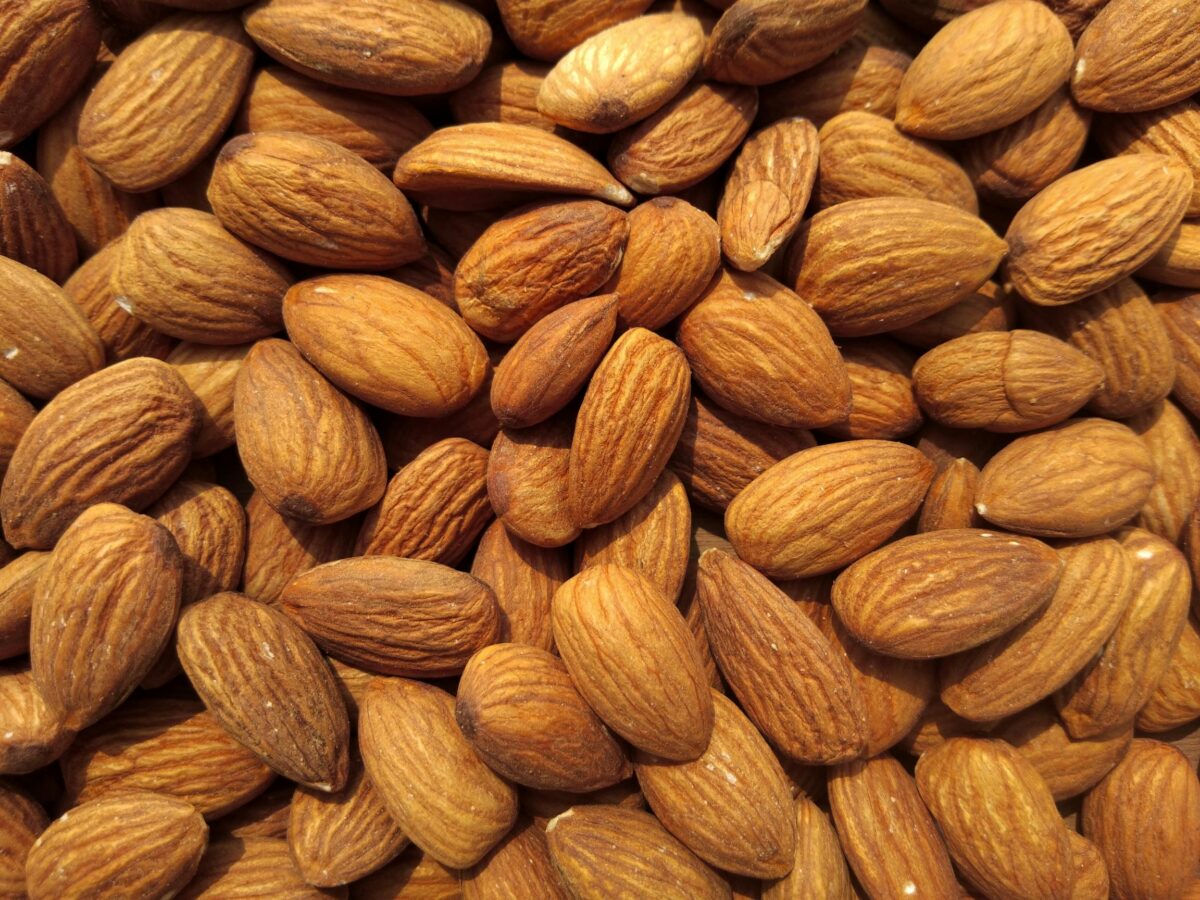
Almonds
Almonds packed with nutrients, including healthy fats, almonds can be enjoyed raw, cooked, as a topping or in granola bars!
1.3mg of iron per 1/4 cup of almonds.
Nutritional Yeast
Nutritional yeast is a versatile vegan food with a high iron content. It’s a deactivated yeast rich in B vitamins, protein, and several minerals, including iron.
It’s also worth noting that nutritional yeast often comes fortified with vitamin B12, another nutrient that vegans and vegetarians need to pay special attention to, as it’s typically found only in animal products. B12 is essential for nerve function and red blood cells and DNA production.
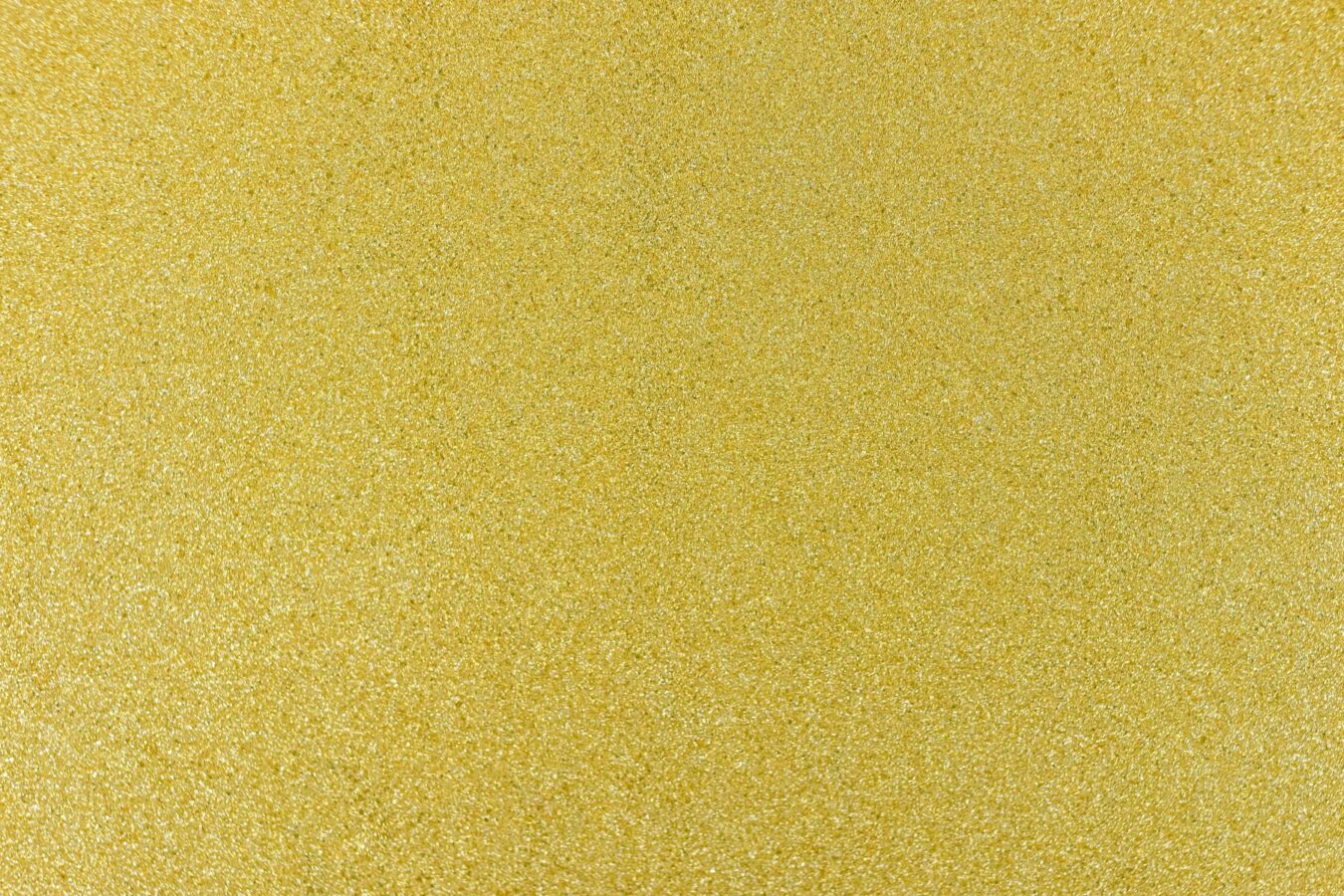
Nutritional yeast
Nutritional yeast has a cheesy, umami flavor that can enhance many dishes. Sprinkle it on your popcorn, stir it into your soup or sauces, or use it as a topping for your vegan pizza or pasta.
You can also mix it into your tofu scramble to mimic the flavor of scrambled eggs.
1mg of iron per 1/4 cup of nutritional yeast.
Tofu and Tempeh
Tofu and tempeh, both derived from soybeans, are versatile foods that can be excellent sources of iron for vegans.
Tofu and tempeh also offer health benefits beyond iron. They’re high in protein, providing all essential amino acids, and contain various minerals and vitamins, including calcium, magnesium, and B vitamins. In particular, due to its fermentation process, tempeh may also promote gut health.
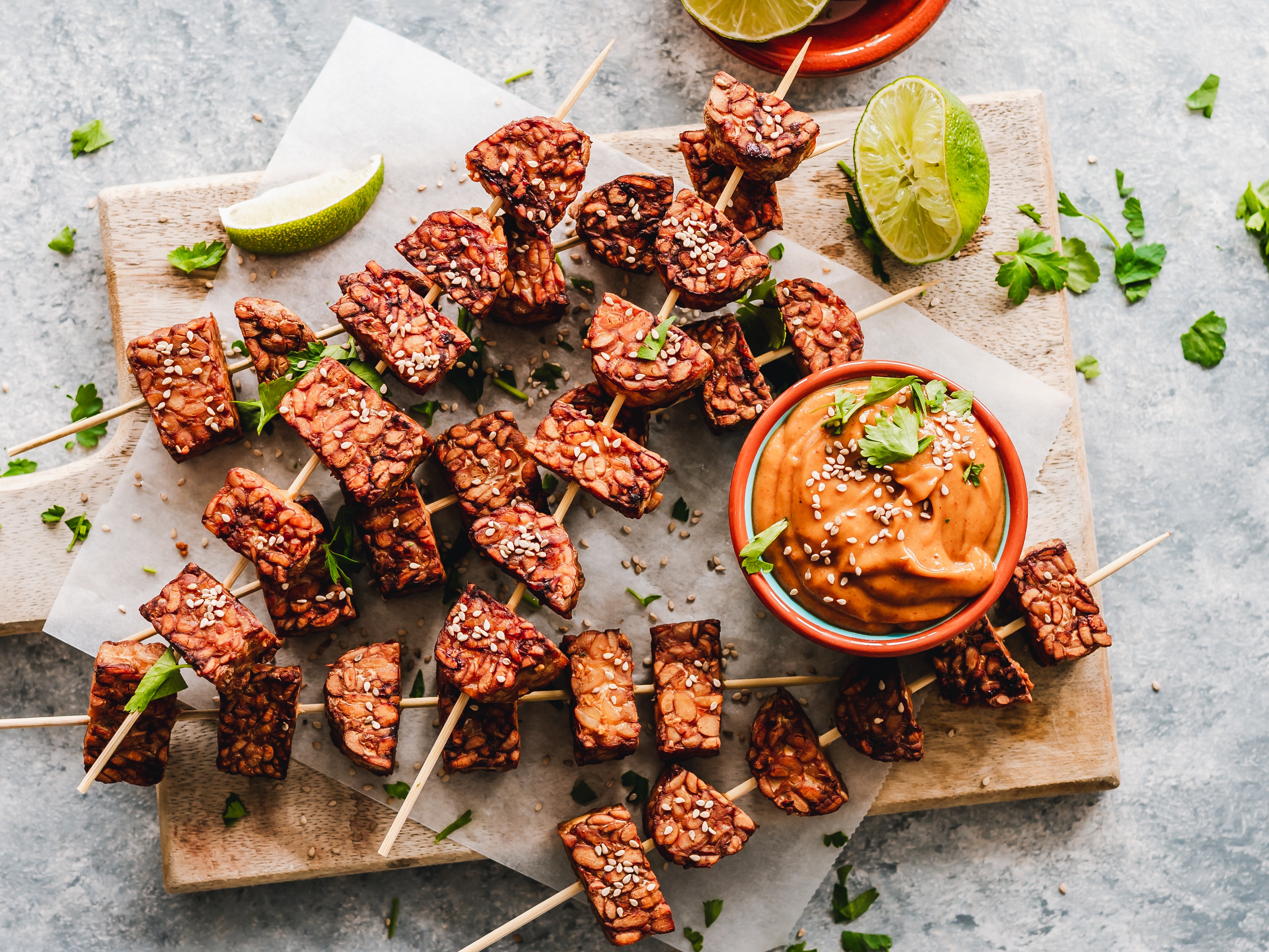
Tempeh
With its nutty flavor, Tempeh can be marinated, baked, or pan-fried to be served as a main dish or included in sandwiches or salads.
2mg of iron per 3oz of tempeh.
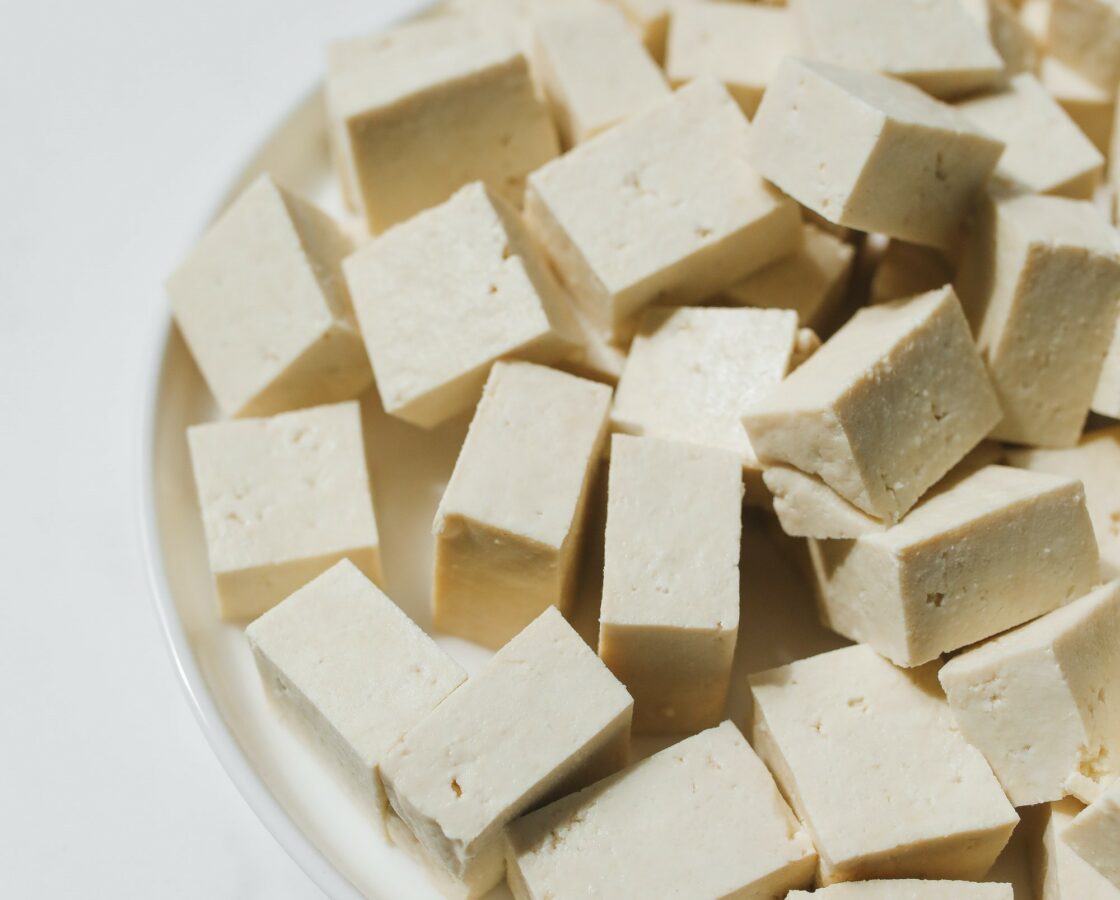
Tofu
Use tofu in your stir-fries, salads, or vegan sandwiches, or blend it into smoothies for a protein boost.
2.4mg of iron per 3/4 cup of tofu.
Vegetables and Fruit
Certain vegetables and fruits are noteworthy for their iron content. These include dark leafy greens like spinach, kale, broccoli and dried fruits like apricots and raisins.
Besides their iron content, these vegetables and fruits are also high in antioxidants, such as vitamin C and beta-carotene, which can enhance iron absorption. Moreover, they provide dietary fiber, promoting gut health and aiding in nutrient absorption.
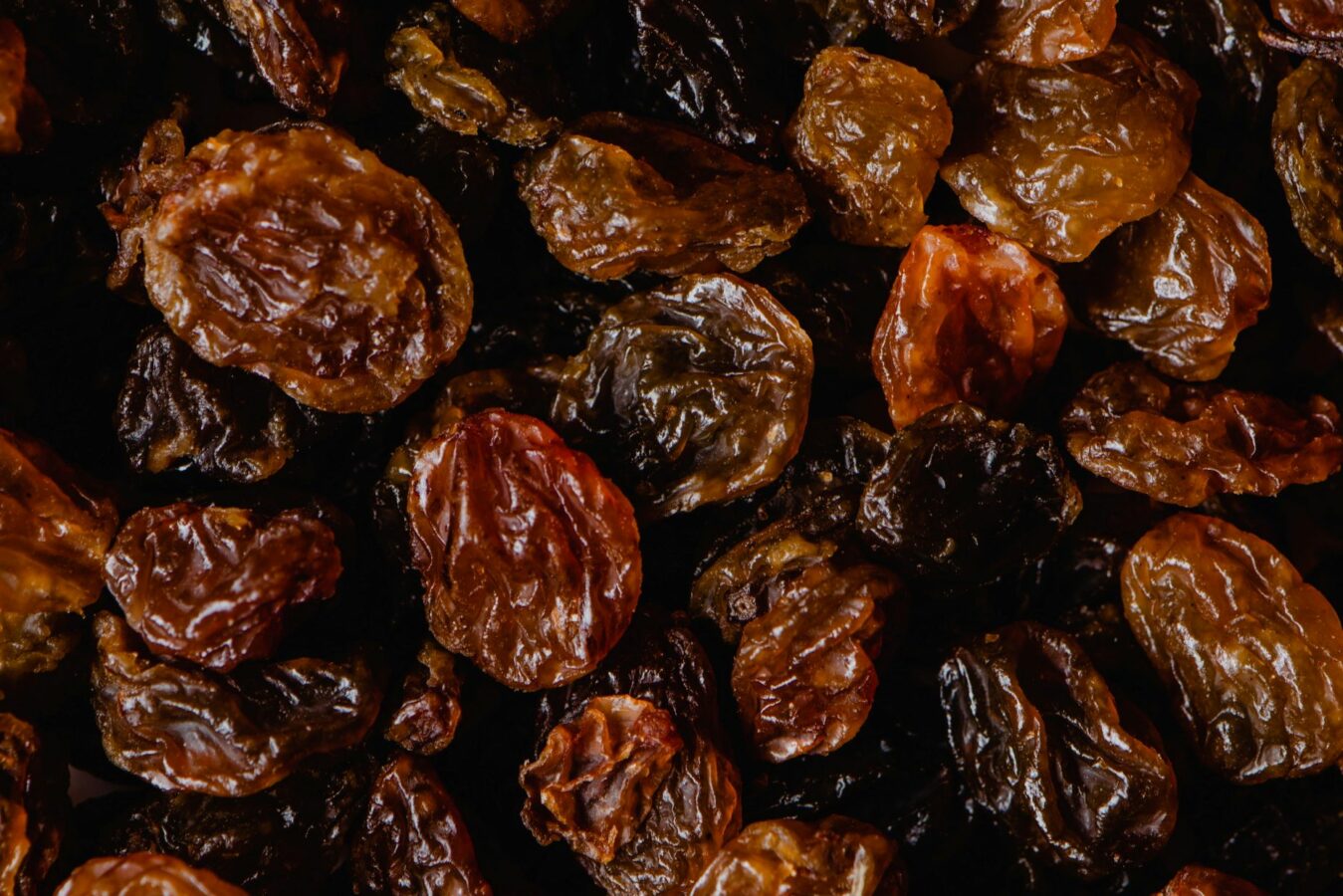
Raisins
Add raisins and sliced almonds to your oatmeal for an iron packed breakfast!
.9mg of iron per 1/4 cup of raisins.
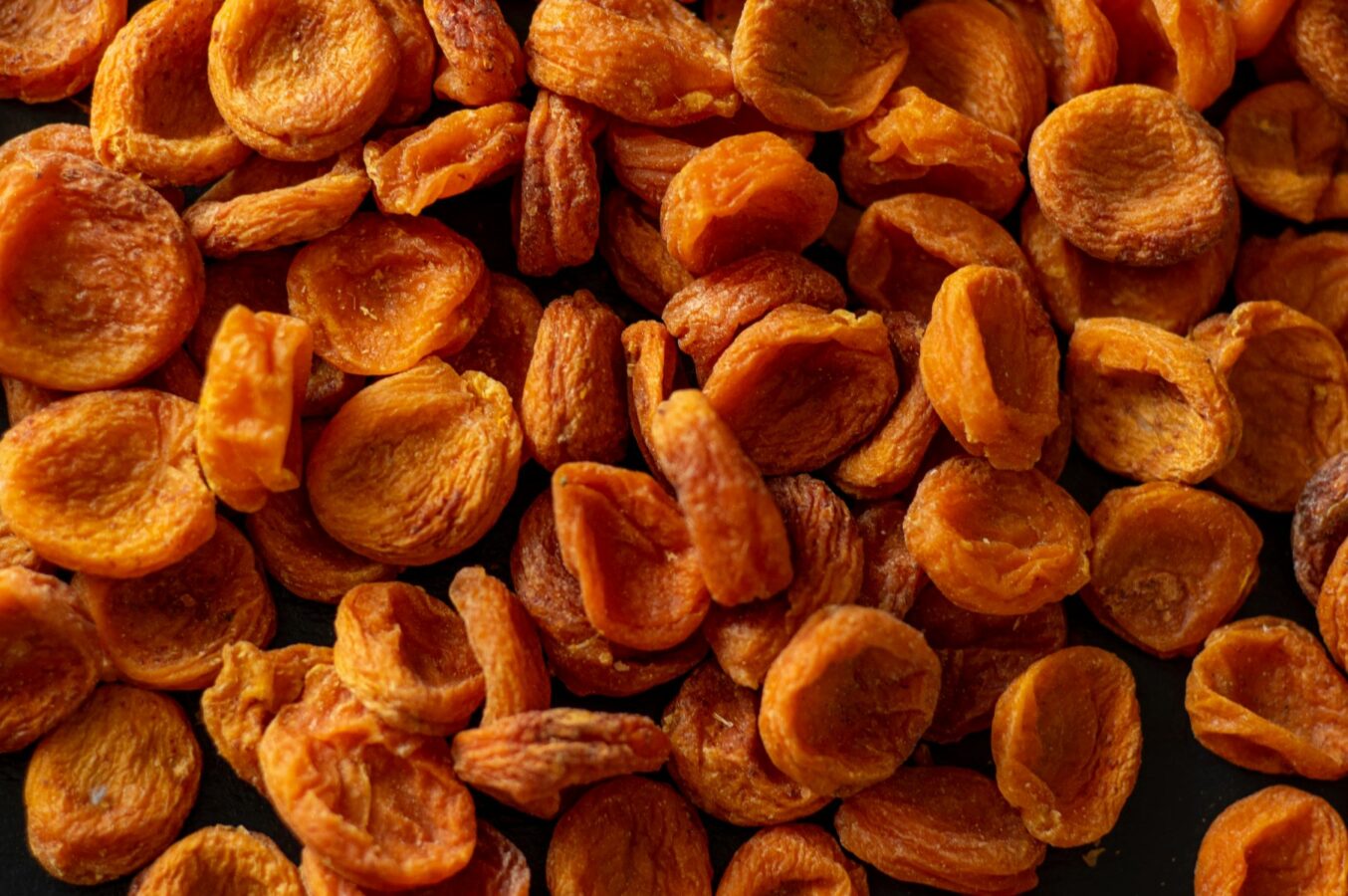
Dried Apricots
Enjoy some dried apricots with your charcuterie board, trail mix, or add to your sandwich for a uniquely elevated experience.
.9mg of iron per 1/4 cup of dried apricots.
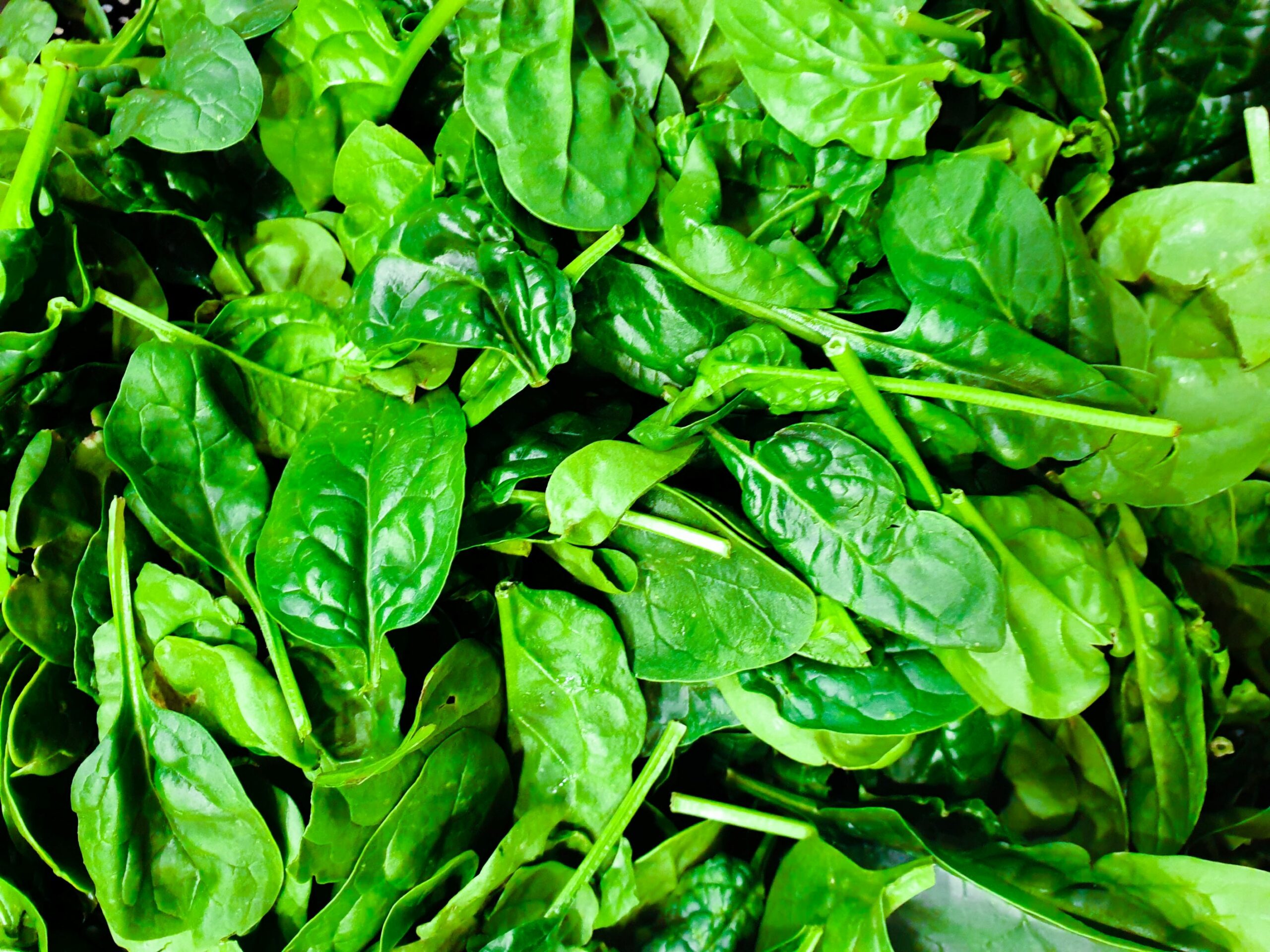
Fortified Foods
Certain vegan-friendly foods are fortified with iron to support plant-based eaters’ nutritional needs further. These include some breakfast cereals, plant-based milk alternatives, and plant-based meat substitutes.
While it’s beneficial to consume fortified foods to meet your iron needs, it’s equally important to maintain a balanced diet rich in various iron-rich foods. It’s always a good idea to seek professional advice before significantly changing your dietary intake.
Remember, fortified foods should not replace whole foods in your diet but should serve as a supplementary source of nutrients. Whole foods provide a broad spectrum of nutrients in their natural form and offer additional benefits such as fiber and antioxidants.
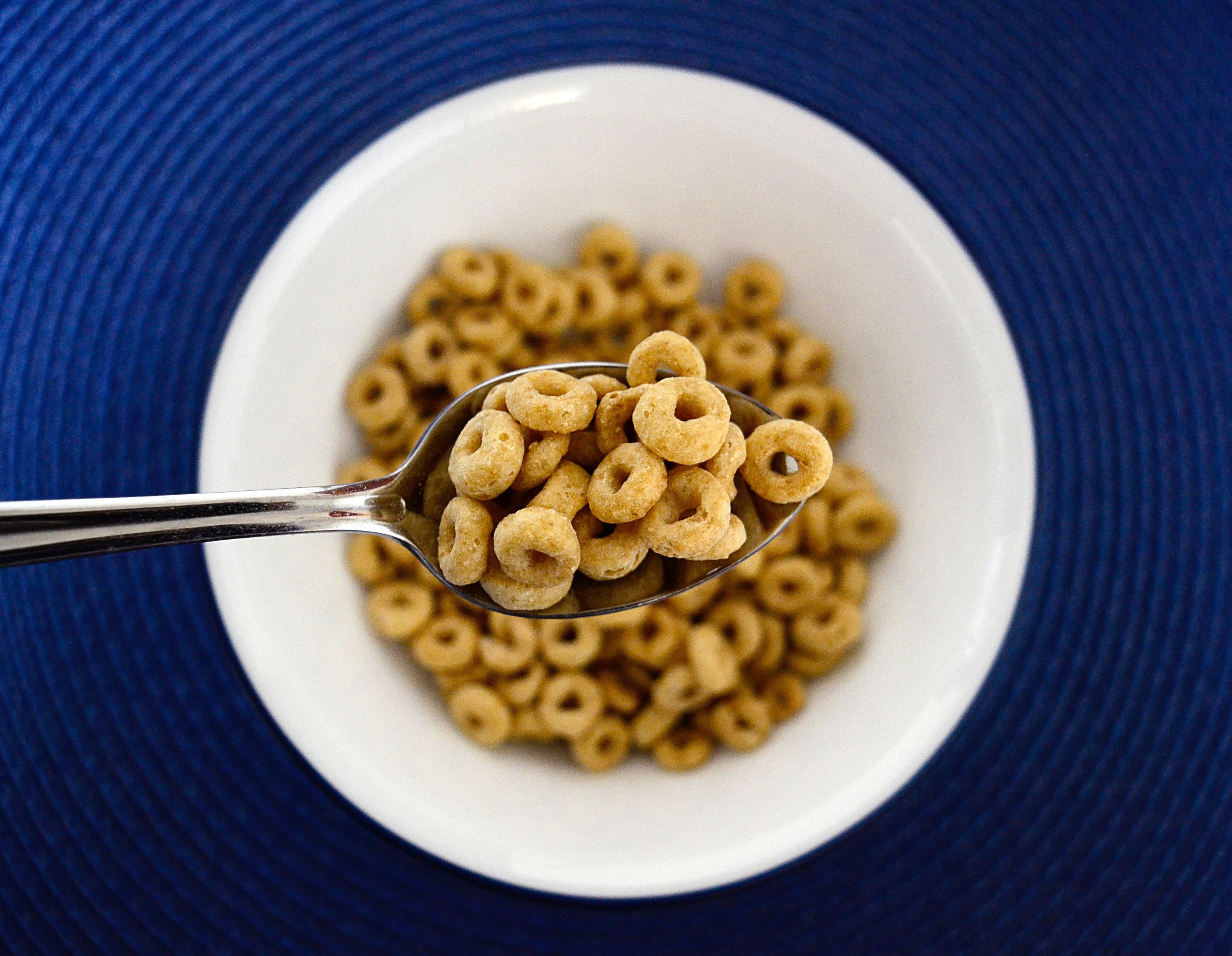
Cereal
Cereal comes in a plethora of flavors, ensuring there is something for everyone!
4.5mg of iron per 30g of fortified cereal.
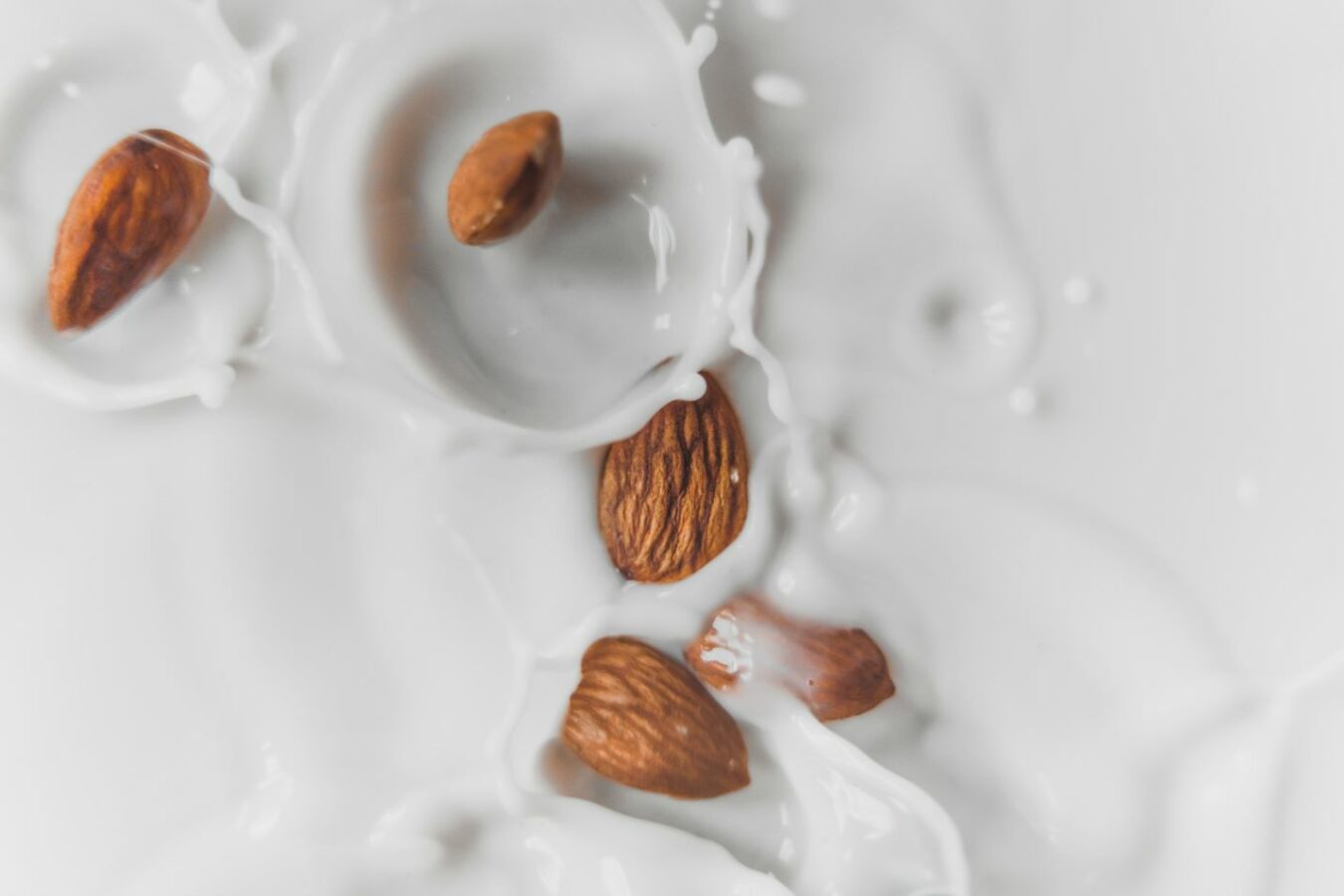
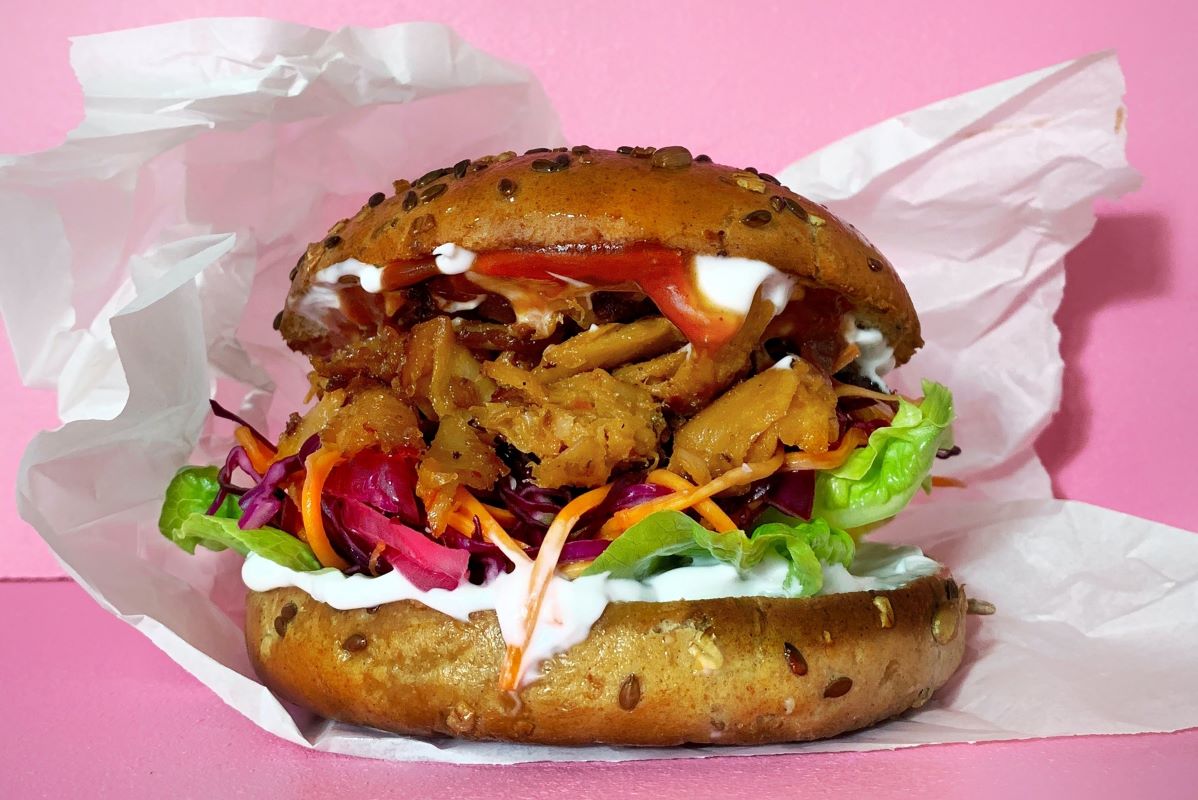
Vegan Meat Substitutes
Vegan meat substitutes come in a variety of options and base ingredients, some are made to mimic the real thing, and others are in a league of their own.
4.2mg of iron per 1 Impossible patty.
Vegan Iron Supplements
While a balanced vegan diet can provide sufficient iron, certain situations may warrant supplementation.
For instance, pregnant women, people who have heavy periods, athletes, or those with diagnosed iron deficiency anemia may require additional iron. It’s crucial to consult a healthcare provider before starting any supplement regimen, as excess iron can lead to health problems.
Iron Supplements
Numerous vegan-friendly iron supplements on the market can support your overall health if your dietary intake isn’t meeting your iron needs. These supplements typically contain non-heme iron, which is found in plant-based foods.
Vegan iron supplements can aid in maintaining healthy iron levels, preventing iron deficiency anemia, and ensuring the proper function of red blood cells. However, it’s important to note that iron supplements should be taken under the supervision of a healthcare provider, as too much iron can cause symptoms such as constipation, nausea, and in severe cases, can damage organs such as the liver and heart.
Furthermore, iron supplements are most effective when taken with a source of vitamin C, as it enhances iron absorption. This can be a vitamin C-rich food like peppers, oranges, strawberries, or a vitamin C supplement.
While iron supplements can benefit those struggling to meet their iron needs through diet alone, they should be considered a secondary option to a balanced, iron-rich diet. Your healthcare provider can provide advice tailored to your circumstances and needs.
How the Body Uses Iron
Iron is a vital nutrient that our bodies need for various functions. When consumed, iron from our diet is absorbed in the small intestine.
Specific proteins and transporters are involved to carry out this absorption process efficiently. For instance, a protein called DMT1 (divalent metal transporter 1) helps transfer iron across the small intestine’s cells. Once absorbed, iron gets bound to a protein called transferrin, which helps transport iron to various tissues in the body.
The body has a complex regulatory system to manage iron absorption, as maintaining the right balance is crucial: too little iron can lead to iron deficiency anemia, while too much can cause iron overload, which can damage organs such as the liver and heart.
As previously mentioned, there are two types of dietary iron: heme iron and nonheme iron. Heme iron is found in animal products and is more readily absorbed by the body. Non-heme iron, found in plant-based foods, is less easily absorbed. Vegans and vegetarians rely on non-heme iron sources and must be mindful of their intake and absorption.
Notably, the iron requirement for vegetarians, including vegans, might be 1.8 times higher than for non-vegetarians due to lower bioavailability of non-heme iron in plant-based diets. The importance of this higher demand lies in counteracting the inhibitory effects of dietary components such as phytates, polyphenols, and fiber.
Positive Absorption Interactions
It’s important to know about certain interactions that can inhibit iron absorption. For instance, certain compounds found in foods like tea, coffee, and some whole grains can bind to iron and reduce its absorption. Therefore, avoiding these foods is often recommended around the time of taking iron supplements.
Vitamin C and Iron
Other than vitamin C, other substances such as organic acids (like citric acid found in citrus fruits) can also enhance non-heme iron absorption. This is why a diet containing various foods can maximize iron absorption.
Vitamin C, or ascorbic acid, is a potent enhancer of nonheme iron absorption. It transforms iron into a more easily absorbed form. Therefore, consuming vitamin C-rich foods like peppers, citrus fruits, or strawberries, alongside iron-rich foods, can significantly increase the amount of iron absorbed by the body.
Negative Absorption Interactions
Calcium and Iron
Calcium, whether from food sources or supplements, can inhibit the absorption of both heme and nonheme iron. Consuming iron and calcium at different times is best to ensure you reap the full benefits of both nutrients.
Phytates and Iron
Phytates, naturally found in whole grains, legumes, and some seeds, can bind to iron and inhibit its absorption.
However, certain preparation methods, such as soaking, sprouting, or fermenting these foods, can help reduce their phytate content and improve iron absorption. So, while these foods are valuable sources of iron for plant-based eaters, it’s essential to prepare them appropriately for maximum iron uptake.
Understanding these interactions can help vegans and vegetarians optimize their iron status and ensure they get enough of this essential nutrient from their diet.
Moreover, incorporating these dietary strategies can also benefit those with conditions like celiac disease or inflammatory bowel disease, where nutrient absorption might be compromised.
Lifestyle Factors That Impact Iron Needs
Iron needs vary from person to person and can be influenced by various lifestyle factors. Understanding these factors can help you manage your iron intake and maintain optimal iron levels.
Exercise
Regular physical activity can increase your body’s iron needs. Intense exercise can lead to higher red blood cell production, requiring more iron. Additionally, some iron can be lost through sweat during exercise.
Hence, athletes, particularly those participating in endurance sports, must pay extra attention to their iron intake to prevent iron deficiency.
Age
Iron needs differ across different stages of life. Infants, children, and adolescents require more iron to support rapid growth and development. Similarly, older adults might need more iron due to decreased nutrient absorption.
In this context, older adults with atrophic gastritis, where stomach acid production is reduced, might face more challenges in absorbing iron. Therefore, they might need to rely on heme iron sources or iron supplements to meet their requirements.
According to the National Institute for Health:
- Infants up to 6 months: 0.27mg of iron daily
- Infants 7 months – 12 months old: 11mg of iron daily
- Children 1 year – 3 years old: 7mg of iron daily
- Children 4 years – 8 years old: 10mg of iron daily
- Children 9 years – 13 years old: 8mg of iron daily
- Teen Boys 14 years – 18 years old: 11mg of iron daily
- Teen Girls 14 years – 18 years old: 15mg of iron daily
- Adult Men 19 – 50 years old: 8mg of iron daily
- Adult Women 19 – 50 years old: 18mg of iron daily
- Adults 51+ years old: 8mg of iron daily of iron daily
Menstruation and Pregnancy
Women of reproductive age often have higher iron needs due to blood loss during menstruation. Iron requirements increase even more during pregnancy to support fetal development and increase maternal blood volume.
Additionally, iron needs remain elevated during breastfeeding, as some iron is passed on to the infant through breast milk. Hence, lactating mothers also need to ensure they are getting enough iron.
- Pregnant teens & women need 27mg of iron daily
- Lactating teens & women need 2.8mg of iron daily
Tips for Meeting Iron Needs on a Vegan Diet
Ensuring sufficient iron intake on a vegan diet requires mindful eating and planning. There are, however, countless plant-based options and ways to meet your iron needs, while remaining vegan.
- Combine iron and vitamin C-rich foods – enhance iron absorption by consuming iron-rich foods with vitamin C-rich foods, like squeezing lemon juice on your lentil salad or having a bell pepper with your hummus.
- Include iron-rich foods in every meal – from breakfast cereals and whole grain toast to leafy green salads and legume-based dinners, there are plenty of opportunities to include iron-rich foods.
- Mind intake of natural iron inhibitors – if you consume iron inhibitors like calcium supplements or drink tea or coffee regularly, try to have them a few hours apart from your iron-rich meals to maximize iron absorption.
- Consider iron-fortified foods – many plant-based foods are fortified with iron, such as breakfast cereals, plant-based milks, and faux meats. These can be a practical way to boost your iron intake.
Additionally, incorporating foods that have been fortified with iron, particularly foods fortified with a type of iron called ferrous iron, can enhance iron absorption due to the higher bioavailability of this form of iron.
Only consider an iron supplement if necessary. If you find it hard to meet your iron needs through diet alone (and your blood test results confirm this), consider a vegan-friendly iron supplement. However, always consult a healthcare professional before starting any new supplement, especially iron.
We’d also recommend trying to cook with a cast-iron skillet. This can add some additional iron to your meals, especially when cooking acidic foods like tomato sauce.
With food choices and meal planning, a vegan diet can absolutely meet your iron needs. Always listen to your body and consult a healthcare professional with concerns about your iron status or overall health.
Keep in mind that if you have persistent symptoms of iron deficiency such as fatigue, paleness, cold hands and feet, or unusual cravings for non-food substances, seek medical advice promptly. Iron deficiency can have long-term health impacts if not addressed timely.
FAQ
What are some good vegan sources of iron?
Excellent vegan sources of iron include legumes (lentils, chickpeas, beans), tofu, quinoa, fortified cereals, nuts and seeds (pumpkin seeds, sesame seeds), and dark leafy greens (spinach, kale).
How can I enhance iron absorption from plant-based foods?
To boost iron absorption, pair iron-rich foods with vitamin C sources like citrus fruits, bell peppers, and broccoli. Cooking in cast iron pans and avoiding calcium-rich foods during iron-rich meals can also help maximize absorption.
How much iron do I need daily on a vegan diet?
The recommended daily intake of iron for adult men and postmenopausal women is 8 mg, while premenopausal women need 18 mg due to menstrual losses. Plant-based eaters may need slightly more iron since plant-based sources are non-heme iron, which is less readily absorbed.
Can I get enough iron on a vegan diet without supplements?
Yes, it’s possible to meet your iron needs through a well-planned vegan diet rich in iron-containing foods. However, some individuals, especially those with higher iron requirements, might consider iron supplements after consulting a healthcare professional.
